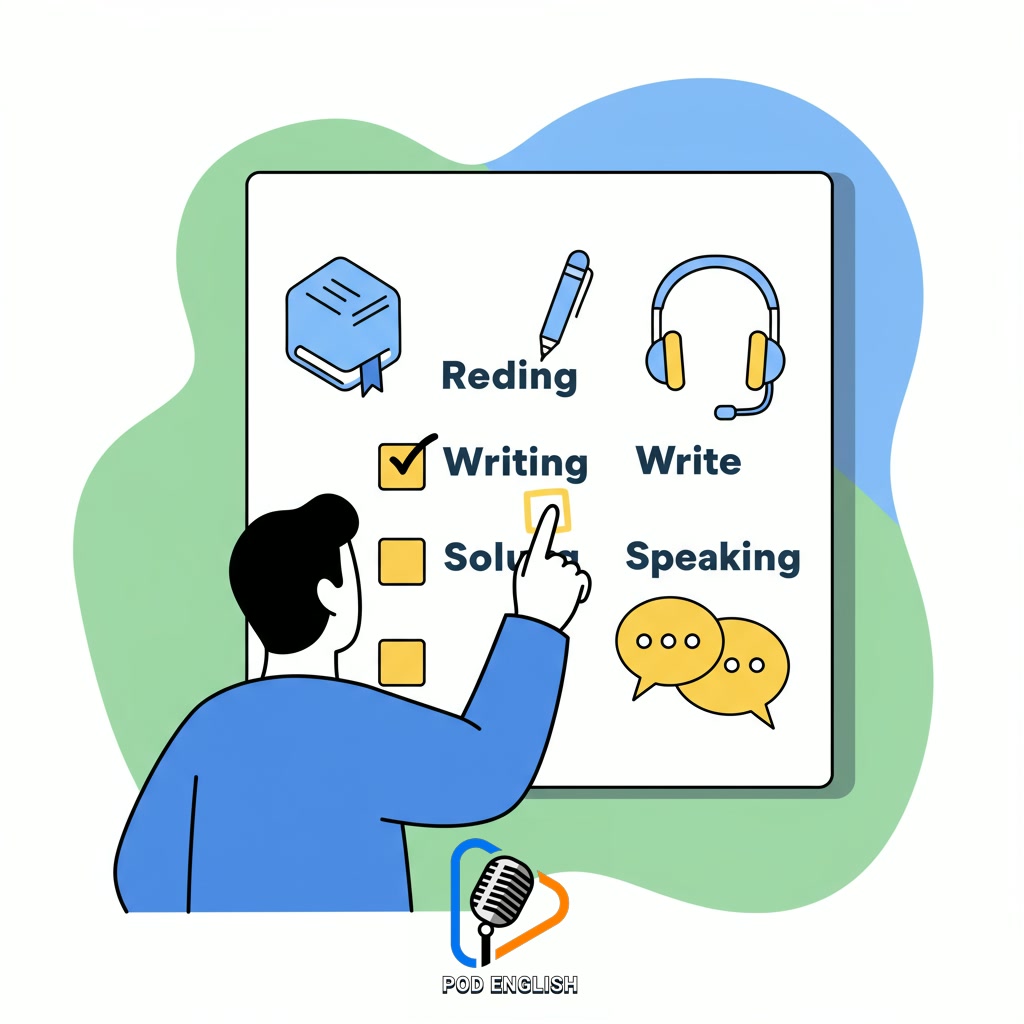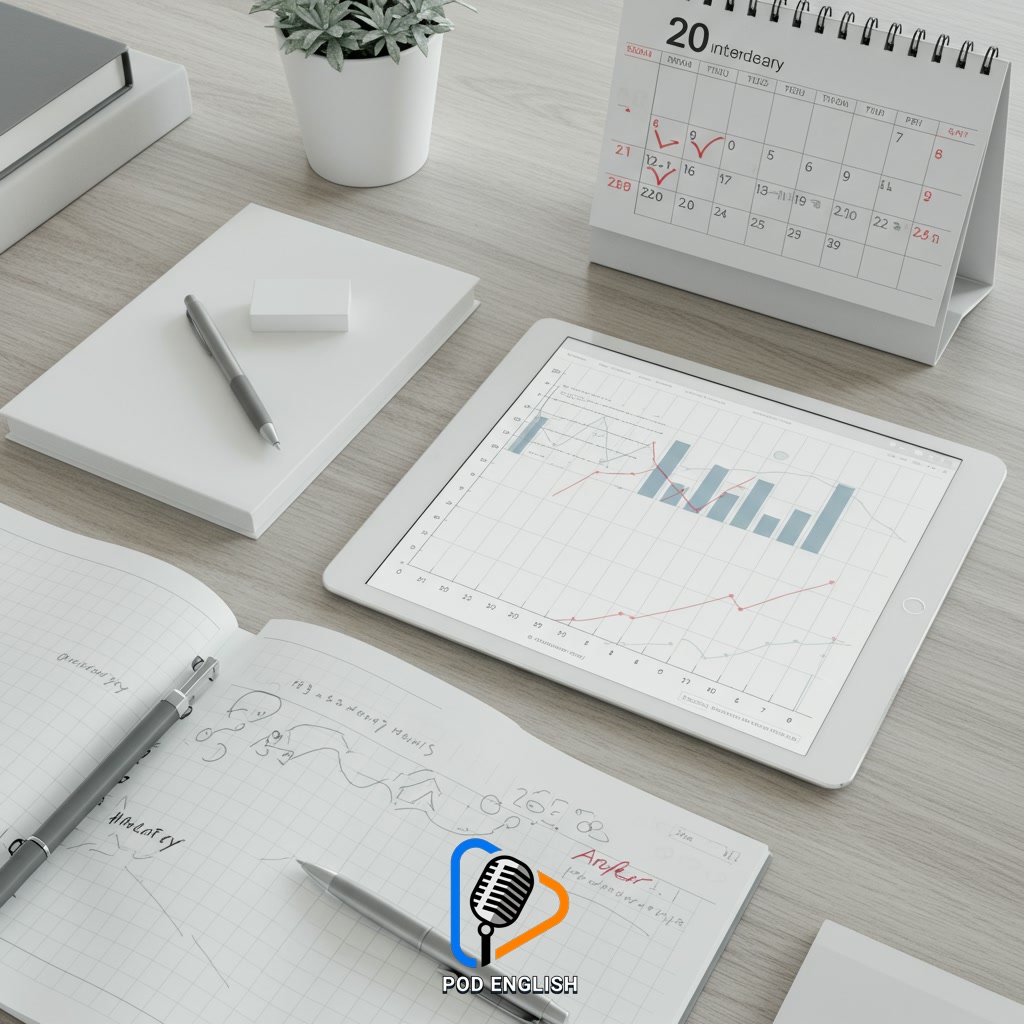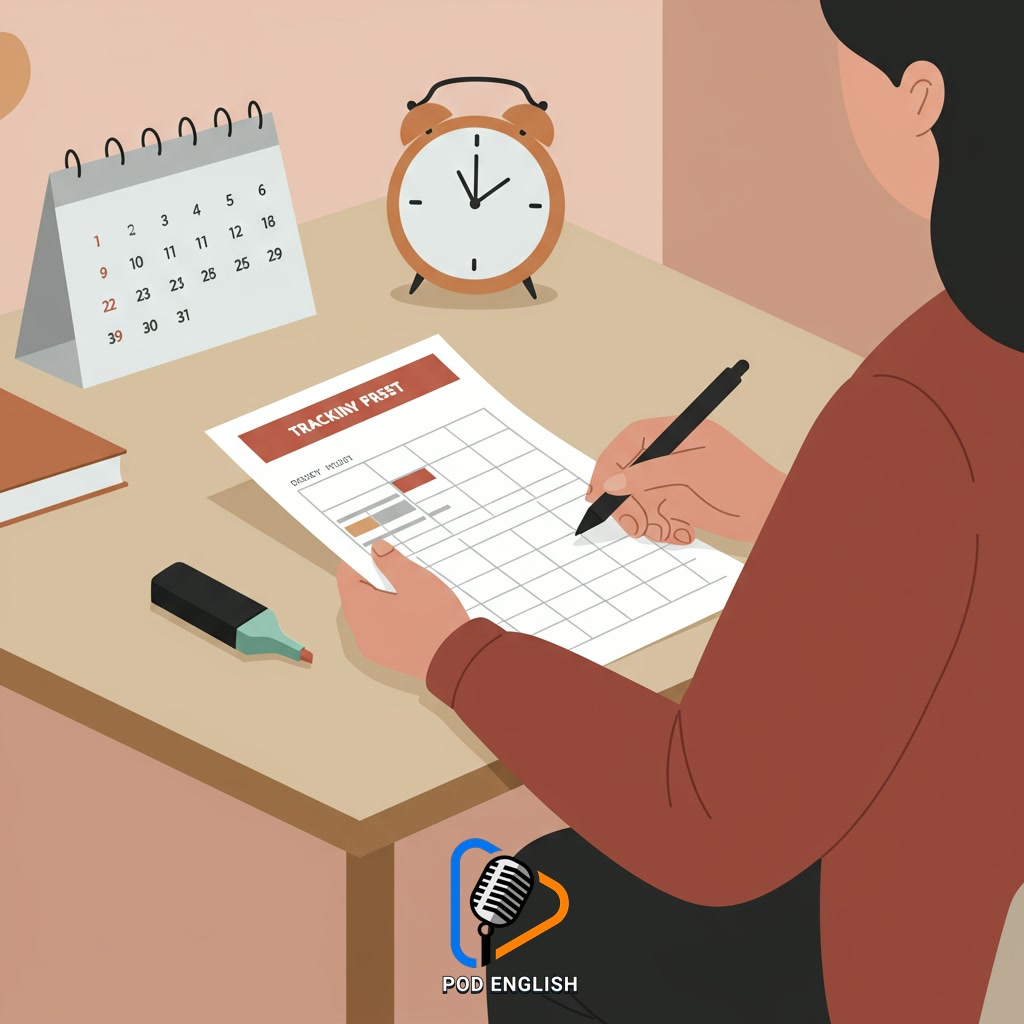Learn English
Learn English: Simple Steps to Record Your Weekly Progress Effectively

This content provides practical guidance for individuals dedicated to learning English. It outlines simple, actionable steps for effectively tracking your weekly progress. By documenting your accomplishments and areas needing focus, you gain valuable insights into your development. Implementing these straightforward methods helps optimize your practice and maintain momentum towards fluency.
Table of Contents
- Section 1: Why Tracking Your English Progress Matters
- Section 2: Identifying What to Record: Key English Skills
- Section 3: Simple Methods and Tools for Recording Progress
- Section 4: Setting Up Your Weekly Review Routine
- Section 5: Analyzing Your Weekly Records Effectively
- Section 6: Using Your Progress Data to Plan Ahead
Section 1: Why Tracking Your English Progress Matters
Understanding why you should track your English learning progress is a crucial first step towards effective study. Learning a new language can sometimes feel overwhelming, and it’s easy to lose sight of how much you’ve actually achieved. By tracking your progress, you gain a clear picture of your journey. It helps you see tangible evidence of your improvements, whether it’s understanding more complex grammar, using new vocabulary confidently, or improving your listening skills. This visibility is incredibly motivating and helps you stay consistent. Furthermore, tracking allows you to identify specific areas where you might be struggling or excelling, enabling you to adjust your study plan to be more efficient and targeted. It transforms the abstract goal of ‘learning English’ into a series of manageable steps and visible accomplishments.
Why Tracking Your English Progress Matters
Section 2: Identifying What to Record: Key English Skills
Now that you understand the importance of tracking your progress, the next step is deciding exactly what aspects of your English learning journey to record. To get a clear picture of your development, focus on the key skills: Reading, Writing, Listening, and Speaking. You should also consider tracking vocabulary acquisition and grammar points you’ve studied or struggled with. Don’t feel pressured to record everything at once; start with what feels most important or challenging for you. Identifying these specific areas allows you to see tangible improvements and pinpoint where you need to dedicate more practice time. This targeted approach makes tracking effective and helps you stay focused on your learning goals.

Identifying What to Record: Key English Skills
Section 3: Simple Methods and Tools for Recording Progress
Once you’ve decided what aspects of your English learning to monitor, the next step is choosing the right tools and methods to record this information effectively. You don’t need anything complicated; simple options work best. A physical notebook or journal is a classic choice, perfect for jotting down new vocabulary, grammar points learned, or brief notes on practice sessions. Alternatively, digital tools like a simple document file on your computer, a spreadsheet to track scores or time spent, or even dedicated language learning apps with built-in tracking features can be incredibly useful. The key is consistency and choosing a method you find easy to use regularly. Whether it’s a pen and paper or a digital log, having a dedicated space to record your progress makes reviewing your journey straightforward and motivating.

Simple Methods and Tools for Recording Progress
Section 4: Setting Up Your Weekly Review Routine
Establishing a consistent routine is key to making your weekly English progress review effective. Choose a specific time and day each week that works best for you – perhaps Sunday evening or Monday morning. Find a quiet, comfortable space where you can focus without distractions. Gather all your notes, tracking tools, and materials you used during the past week, such as vocabulary lists, grammar exercises, or practice logs. This dedicated time and space signal to your brain that it’s time to reflect and analyze your learning journey, making the review a productive habit rather than a sporadic task.

Setting Up Your Weekly Review Routine
Section 5: Analyzing Your Weekly Records Effectively
Once you’ve established a consistent routine for recording your weekly English progress, the next crucial step is to effectively analyze those records. Don’t just write things down; take time to look closely at what you’ve documented. Review your notes to identify your successes – what skills improved, what topics did you understand well? Equally important is recognizing areas that were challenging or where you didn’t meet your goals. Look for patterns: Are you consistently struggling with the same grammar point? Is listening harder than reading this week? Use these insights to understand your learning journey better. This analysis isn’t about judgment; it’s about gaining clarity to make informed decisions for your study plan in the coming week, ensuring your practice is targeted and efficient.

Analyzing Your Weekly Records Effectively
Section 6: Using Your Progress Data to Plan Ahead
Once you have analyzed your weekly English progress data, the next crucial step is to actively use that information to plan your upcoming study sessions. Looking at your accomplishments helps build confidence, while identifying areas where you struggled provides clear targets for improvement. Don’t just observe your patterns; translate them into concrete actions. For instance, if your data shows difficulty with a specific grammar tense, dedicate focused time next week to reviewing and practicing it. If speaking practice felt weak, schedule more conversations. By letting your progress data guide your planning, you ensure your study time is efficient, targeted, and directly addresses your current needs, helping you move forward effectively on your English learning journey.

Using Your Progress Data to Plan Ahead













